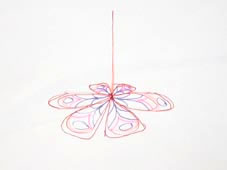 One
Reality:
the web-site of
Keith Beasley
One
Reality:
the web-site of
Keith Beasley
Experiential Teaching
“Knowledge is continually derived from
and tested out in the experience of the learner”
Kolb (1984 p27)
In preparing for Stage 1 of my PGCertHE, I was pleased to look into the work of David Kolb and successors. There I found the academic support for a reality that had slowly been dawning on me as both a learner and teacher. Whilst facts, figures and theories can be taught in a conventional manner, the teaching of most subjects can benefit, often significantly (as least for some students) by including experiential elements to the classes. This is particularly the case not only for practical and artistic subjects (cookery and music for example), but for within the heading of life skills. My own interest and experience is in the teaching of those essential abilities that might fall under the heading of 'Spiritual, moral, social and cultural development', but unfortunately are often excluded from curricula: how to understand and develop our 'deeper' or real selves.
A key interest is the 'soft skills' or transferable 'life skills' that are essential in professional and personal lives, those that recognise 'the human element' in all situations, including work and education. We are, after all, each unique human beings with feeling and emotional as well as physical needs. Whether it's 'human reliability', 'emotional intelligence', or just being aware of the feelings of those around us, integrating these facets of ourselves with the conventional (objective) reality is key to become whole and feeling fulfilled in life.
A full list of subjects that I am currently able to offer, at most levels, is here. Full courses descriptions with learning outcomes etc, are available on request. Below is a summary of subject areas for which experiential modules or classes can be provided. Further related subjects can also be developed on request.
Spirituality
Evolutionary consciousness
Personal development
Emotional Intelligence
To foster and fully utilise high IQ and academic brilliance is obviously important, but life without 'heart and soul' is dry and meaningless. Development of our emotional intelligence (EI) enable us to bring together our thoughts and our emotions; how we think and how we feel. On the above pages I share my personal experience of this developmental journey and offer some approaches to enhancing our EI.Depth, value & meaning
What do you value most in life? Perhaps your own health, or the smiles of your close family and friends? What gives live meaning? Being able to enjoy a country walk maybe? Contrast such answers with those provided by the advertising industry and our pre-occupation with material wealth and possessions. As the finances of families and states shrink in the current climate, we are all being forced to question what it is we actually need to survive and be happy. To acknowledge and let go of old attachments - physical, mental and emotional is to begin to embrace the One Reality of life and to Be happy, rather than thinking we need something or someone to MAKE us happy. On the above link I explore related ideas and practices. (coming soon).

Healing Art
Reiki
Copyright 2012 by Keith Beasley